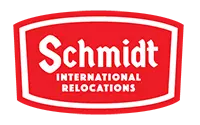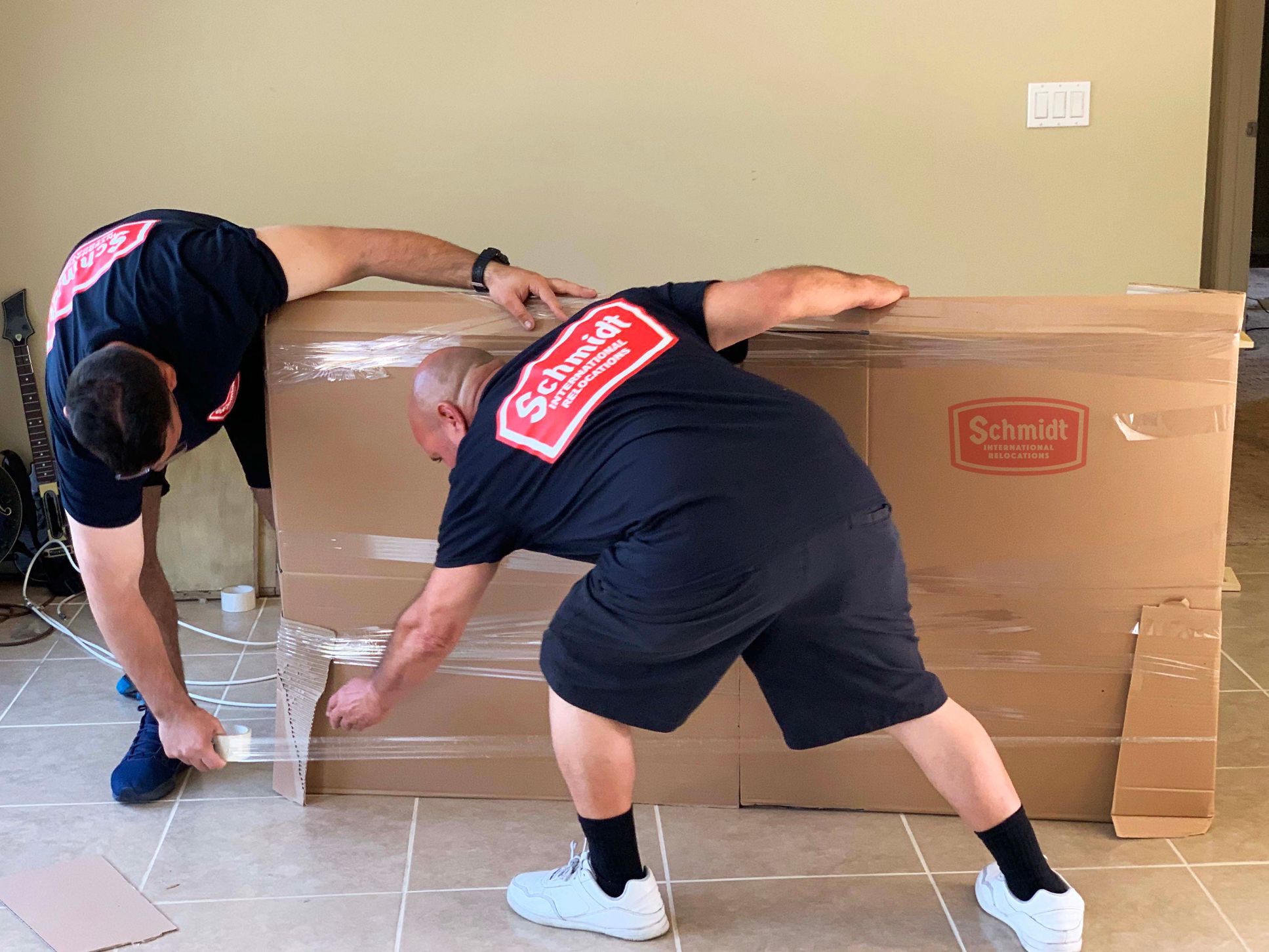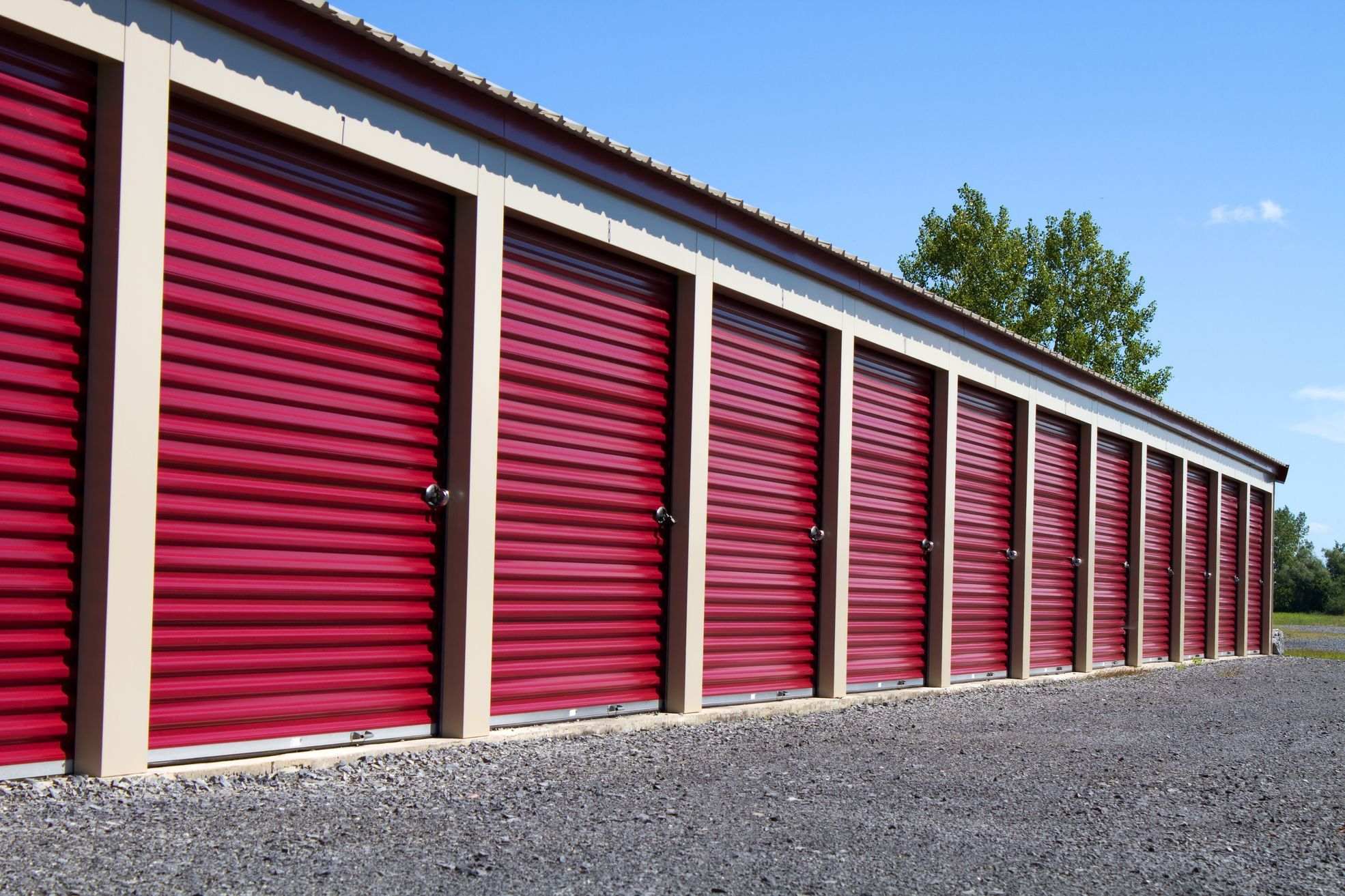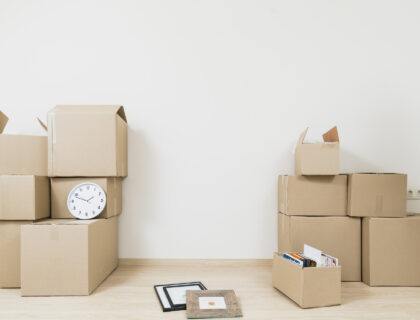

Moving internationally is both exhilarating and challenging. But do you know how to prepare to move to another country? From understanding cultural nuances to handling logistics, our guide will steer you through the process, ensuring you’re set for a seamless transition. Dive in and learn the essential steps to move to another country, arming yourself with knowledge for the journey ahead.
How to pick up and move to another country? Begin with researching your destination and gathering info on the culture, language, customs, healthcare, insurance, and other important services. Set a comprehensive timeline, create a budget, and allocate enough time to get visas, arrange paperwork and important documents, and book tickets. Declutter, inform relevant parties about relocating abroad and make housing arrangements. If you can’t manage it all by yourself, book professional assistance.
Research Your New Destination
When relocating abroad, this preliminary research provides insights into the cultural, social, and economic dynamics of the locale, allowing you to adapt more easily and avoid potential missteps. Moreover, understanding the customs, regulations, and even different climate conditions can significantly impact your initial experience and overall satisfaction in the new environment.
Gather Information About the Culture, Language, and Customs
Gathering information about the culture, language, and customs is about enriching your experience and making the most out of your journey abroad. Getting familiar with these pieces of information before moving overseas is crucial for multiple reasons:
- Enhanced communication – understanding and learning the local language, even at a basic level, facilitates day-to-day interactions. This can help in breaking the language barrier and performing tasks as simple as ordering food or as crucial as discussing terms in a business meeting.
- Avoid cultural misunderstandings – being aware of these norms can prevent inadvertent offenses and cultural shocks. For instance, in some cultures, direct eye contact is considered rude, while in others, it’s a sign of trustworthiness.
- Respect their traditions and etiquette – often rooted in history, it offers insights into the cultural fabric of the community, fostering deeper connections and appreciation. Moreover, recognizing and adhering to local etiquette helps avoid unintentional missteps that could be perceived as disrespectful.
- Build relationships – when you show respect for local customs and traditions, you’ll find it easier to forge strong connections, both personally and professionally. Being culturally aware can serve as an icebreaker in many social situations.
- Embrace local experiences – by truly understanding the inhabitants around you, you’ll be better equipped to immerse yourself in local festivals and other experiences, enriching your stay.
- Navigate bureaucracy – understanding local customs can also assist in navigating bureaucratic processes. For instance, in some countries, it might be customary to offer a small gift when meeting with a business associate or government official.
- Personal growth – immersing yourself in a new culture broadens your perspective and cultivates cultural sensitivity. By learning about different ways of life, traditions, and beliefs, you cultivate empathy, adaptability, and open-mindedness.

Understand the Local Laws, Regulations, and Requirements
Having some foundational knowledge of the local law when moving to a different country ensures that you remain compliant and avoid unintentional legal infractions, which could lead to fines, deportation, or other punitive measures. Being well-versed in local laws can aid in smoother interactions with governmental and administrative bodies, especially when applying for permits, licenses, or residency.
Moreover, it equips you with a sense of rights and responsibilities in unfamiliar surroundings. For example, understanding employment laws can protect your rights as a worker, and being aware of local housing regulations can safeguard your interests as a tenant.
Researching Healthcare, Education, and Other Important Services
Access to quality healthcare ensures that you and your family receive prompt and appropriate medical attention when needed. Familiarizing yourself with the healthcare system helps in making informed decisions during emergencies or routine check-ups.
Similarly, if you have children or are planning to pursue further studies, understanding the education system will enable you to choose the best city for continuing education and suitable institutions, be it schools or universities. Moreover, looking into other key services like public transportation, banking, postal services, and emergency services provides a comprehensive view of your new environment.

Create a Comprehensive Moving Abroad Timeline
A well-structured relocation plan and timeline aids in prioritizing tasks based on urgency and importance. By visualizing each step in the process, you can allocate sufficient time for unforeseen delays or complications. Furthermore, a clear timeline offers peace of mind, allowing you to monitor your progress and ensuring that everything is on track.
Set a Realistic Timeline for the Entire Relocation Process
A practical time frame ensures that each aspect is addressed methodically without last-minute rushes, reducing potential oversights or errors. This consideration not only allows for the completion of bureaucratic processes, which can be time-consuming, but also provides buffer periods for any unforeseen challenges or delays. This way, you can ensure that by the time you’re ready to move across the world, everything is in order and well-coordinated, facilitating a smoother transition to your new city.
Break Down Tasks Into Manageable Phases, From Planning to Settling In
Instead of viewing the relocation as one monumental challenge, segmenting it into distinct stages makes it more digestible and less intimidating. In the planning phase, you focus on research, gathering vital information about your new destination, and making preliminary decisions.
As you progress, tasks might shift toward logistical details, like deciding what to pack and when is the right moment to arrange transportation. Once you’ve moved, the settling-in phase encompasses finding the best place to live, understanding local amenities, and integrating into the community. This structured approach ensures that your attention is concentrated on a specific set of tasks, enhancing relocation efficiency.
Allocate Sufficient Time for Visa Applications, Paperwork, and Travel Arrangements
Visa applications can often be intricate, with specific requirements and varying processing times depending on the country. Ensuring you have ample time to gather necessary documentation, fill out forms accurately, and address any potential issues can make the difference between a smooth approval process and unforeseen complications.
Furthermore, handling paperwork, whether it’s health records, academic transcripts, or official attestations, can be time-consuming and requires meticulous attention to detail. And let’s not forget that travel arrangements, such as booking flights, coordinating with your movers, and ensuring all belongings are accounted for, necessitate a well-thought-out timeline.
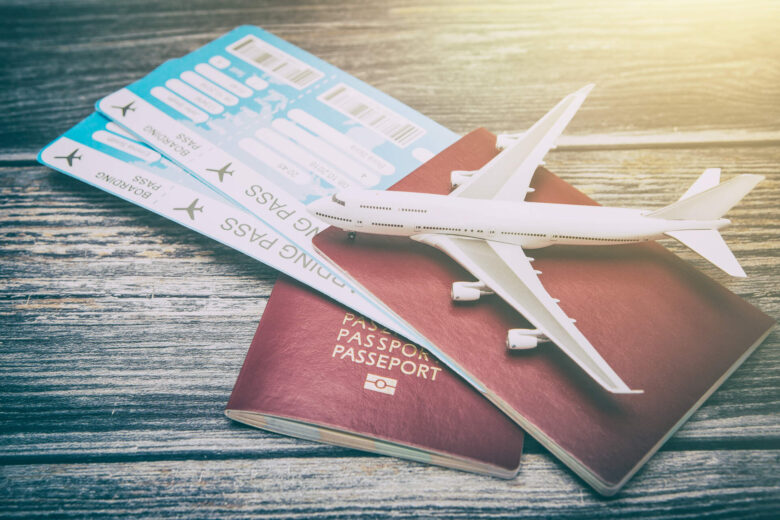
Hire an International Moving Company
Keep in mind that hiring international movers is a pivotal step when preparing for relocation to another country. Schmidt International Relocations has vast experience in overseas shipping, ensuring your belongings are transported safely, efficiently, and in compliance with international regulations. We are known for our meticulous planning, global network, and customer-centric moving services.
By collaborating with our trusted crew, you will gain peace of mind knowing that your possessions are in capable hands. Moreover, we will navigate the intricacies of customs clearances, packing requirements, and logistical challenges for you, turning what could be a stressful relocation into a manageable and streamlined process.
Use More Than One International Moving Service
Diversifying your approach by booking more than one Schmidt International Relocations service can significantly ease your relocation. Each service addresses a unique facet of the relocation process, ensuring a comprehensive and safe transition.
Our professional packing service, for instance, ensures that your belongings are securely and efficiently packed, mitigating potential damages during transit. If you’re relocating with a vehicle, overseas vehicle shipping becomes essential, so we will ensure that your automobile is transported safely and in compliance with international regulations.
Meanwhile, our storage solutions offer a safe haven for items that you might not need immediately upon arrival, giving you time to settle in without feeling overwhelmed. Custom crating is invaluable for delicate or unusually shaped items, offering tailored protection during the journey. By integrating our diverse services, you’re not just moving! We’re crafting a well-orchestrated, stress-free relocation experience.
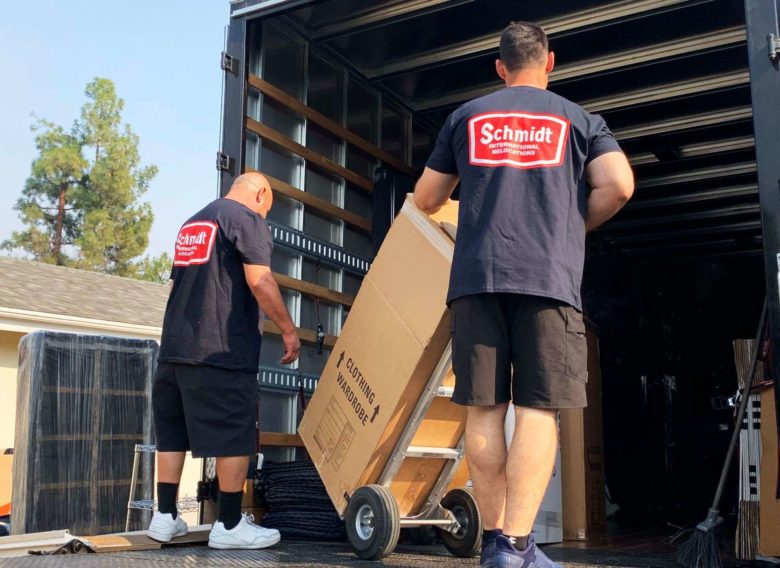
Sort and Downsize Belongings
As we accumulate items over time, moving offers a great opportunity to evaluate what is truly worth keeping. Downsizing allows you to decide which items to bring along, which might fetch a price if sold online on platforms like Craigslist, which can be generously donated, and which you should simply get rid of.
Moreover, minimizing the number of items directly translates to reduced shipping and storage costs. Every extra pound or kilogram can add to your relocation expenses, especially when moving internationally. It’s imperative to start this process well in advance. Leaving it to the eleventh hour not only adds undue stress but might also result in hasty decisions.
Follow the video below for 67 things you can get rid of immediately and make your life and relocation clutter-free.

Organizing Important Documents Is a Must
Gathering and organizing important documents is a cornerstone of the international relocation process. Vital papers such as passports, visas, birth certificates, and medical records form the core of your identity and eligibility in a new country. They serve various purposes, from legal recognition to facilitating access to essential services in your new home.
In today’s digital age, creating digital copies of these crucial documents adds an extra layer of security. By storing them securely online, not only do you have a backup in case of physical loss or damage, but you also have the convenience of accessing them from anywhere, anytime. Cloud storage or encrypted digital vaults can be particularly useful for this purpose.
Ensuring all documentation is up-to-date and easily accessible is equally paramount. Outdated documents can result in bureaucratic hurdles, delays, or even potential legal complications. Organizing them systematically, perhaps in a dedicated folder or binder, ensures that you have everything at your fingertips when required, be it for customs clearances, residential applications, or medical emergencies.
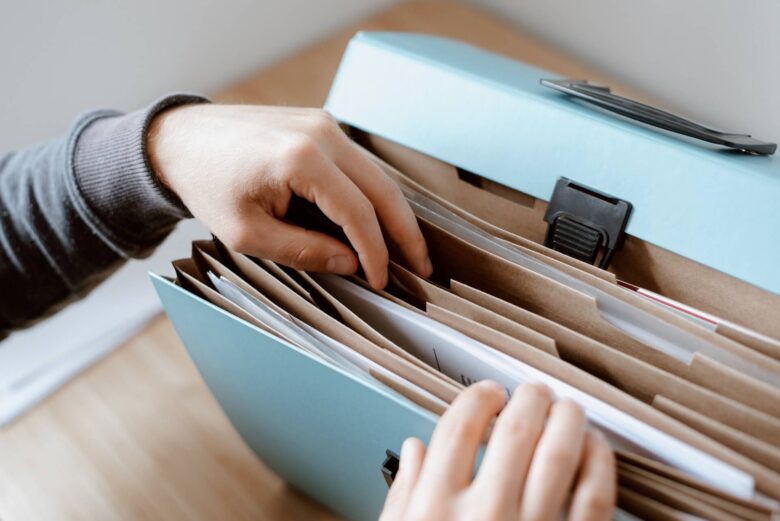
Financial Planning and Creating a Budget
Navigating the financial terrain is crucial when relocating to a new home, regardless of whether you’re moving on a tight budget or comfortably financed. Researching the local currency equips you with knowledge about exchange rates and purchasing power, helping you make informed financial decisions.
Creating a comprehensive budget is the key to a successful relocation. It should encompass all foreseeable expenses, such as shipping costs, travel expenses, initial accommodation, and any deposits or fees in the new country. A well-structured budget provides a roadmap, helping you manage finances efficiently, and ensures that you’re prepared for both expected and unexpected expenditures during the transition.
Go Over Healthcare and Insurance Options
Every country boasts its distinct healthcare landscape, with varying standards, facilities, and costs. By researching the available healthcare options in your new destination, you gain a comprehensive understanding of how to access medical services, be it through public hospitals, private clinics, or specialist centers. Also, understanding the intricacies of the healthcare payment structure, whether it’s out-of-pocket, subsidized, or insurance-driven, is crucial.
Transferring Medical Records and Prescriptions
Your medical history, encapsulated in records, offers invaluable insights to new healthcare providers, enabling them to understand your health profile, previous diagnoses, treatments, and any ongoing medical needs. This ensures continuity of care, reducing the risk of misdiagnoses or potentially harmful treatments. If you have ongoing prescriptions, transferring them is equally critical. Be aware that different countries may have variations in medication brands, formulations, or availability.

Make Housing Arrangements
Whether you’re seeking temporary lodgings or a more permanent residence, having a place to call home upon arrival is essential for a smooth transition. Researching the best areas to live in through platforms like Teleport, the safety of neighborhoods, understanding local real estate markets, and considering the proximity to work, schools, or essential services can guide your choices.
For those not ready to commit to a permanent address immediately, temporary housing, such as serviced apartments or short-term rentals, can offer a base while exploring options at a comfortable pace.
Find Suitable Housing Options in the New Location
Cost is a fundamental factor in determining whether you’ll be renting or buying. Aligning your housing choice with your budget ensures financial stability as you navigate other expenses in your new environment. Equally vital is the property’s location. Proximity to workplaces, schools, public transport, and essential amenities can influence daily convenience and overall satisfaction.
Notify Relevant Parties About the Relocation
Firstly, it’s imperative to notify entities deeply intertwined in your daily life, such as your current employer and educational institutions. Their awareness facilitates smoother transitions, whether it’s ending work contracts or transferring school records. Service providers, including utilities, subscriptions, and memberships, also need to be informed to avoid billing issues or service interruptions.
Updating your contact information with vital institutions like banks and insurance providers ensures you remain reachable, safeguarding against potential issues related to accounts or financial transactions. Banks often have security protocols in place that may flag foreign transactions as suspicious, potentially leading to account freezes or other inconveniences.
An often-overlooked yet essential task is managing mail redirection. Setting up an international forwarding system or redirecting mail to a trusted local contact ensures you don’t miss out on important correspondences, be they personal or official.

Follow Our Guide, and You’ll Figure Out How to Prepare to Move to Another Country in No Time
Embarking on an international move is both an exhilarating adventure and a challenge. Yet, with the right guidance and preparation, the complexities of such a transition can be efficiently navigated. Schmidt International Relocations will ensure that you’re equipped with the knowledge and tools needed to prepare for your fresh start.
Remember, every journey begins with a single step, and we’re here to support you at every juncture. If you have any uncertainties or need personalized advice, don’t hesitate to contact us immediately. With our expertise, you’ll be ready to embark on your new chapter abroad in no time.
FAQ
What Are the First Steps to Take When Researching How to Move Out of the Country?
Before anything else, immerse yourself in comprehensive research. Understand the political climate, safety, and living standards of your destination. Establish a clear moving budget to cover all foreseeable expenses, and draft an initial timeline that you can refine as your plans solidify.
How Can I Research and Understand the Cultural Differences in My New Destination?
To truly blend in and absorb as much about the local culture as you can. Read books set in that location and watch documentaries and movies. Attend workshops or cultural immersion classes if available. Online expat communities and forums offer firsthand experiences and insights from those who’ve lived there.
What Is the Importance of Creating a Moving Timeline, and What Should It Include?
A well-structured timeline serves as your roadmap, ensuring you’re always on track. It should begin with initial research and end with settling into your feature home. Factor in time for tasks like visa processing, sorting belongings, conducting final visits or goodbyes, and getting acclimatized to the new environment.
How Do I Decide What Belongings to Bring and What to Leave Behind?
Think practicality. The local climate might render some of your clothes unnecessary. If moving to a furnished apartment, bulky furniture might be redundant. Shipping costs can be hefty, and sometimes, it’s cheaper to just buy new than ship old. Always prioritize sentimental and irreplaceable items.
How Can I Handle Financial Matters and Banking When Moving to Another Country?
Transitions can cause hiccups in financial flow. Alert your bank about potential overseas transactions to prevent freezes. Research local banking practices – you might need to open a local account or find a suitable international bank. Understand currency conversion rates to avoid overspending.
What Should I Know About Visa and Immigration Requirements for My New Country?
Each country’s visa and residency rules differ. Start this process early, as approvals can take time. Depending on the reason for your relocation, ensure you apply for the correct visa type.
How Do I Ensure I Have Access to Healthcare and Arrange for Health Insurance?
Health should never take a backseat. Familiarize yourself with the healthcare standard and system of the destination. Does your current health insurance offer international coverage? If not, scout for a plan that does, ensuring it covers both general and emergency care.
How Can I Ensure the Safety and Security of My Belongings During the Move?
Trustworthy moving companies with international experience are worth the investment. They understand customs regulations and shipping intricacies. For peace of mind, get insurance for belongings that are valuable or delicate.
